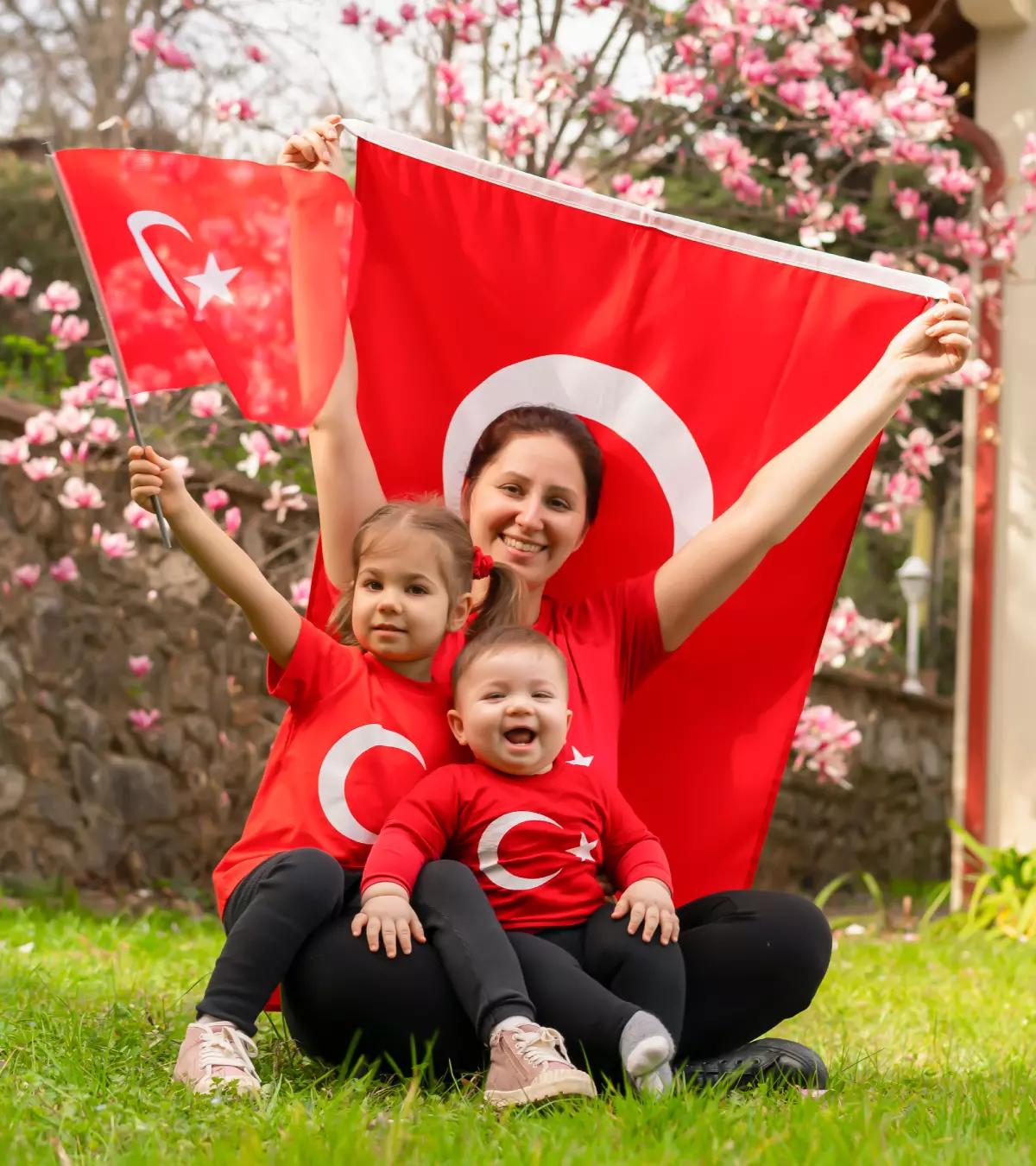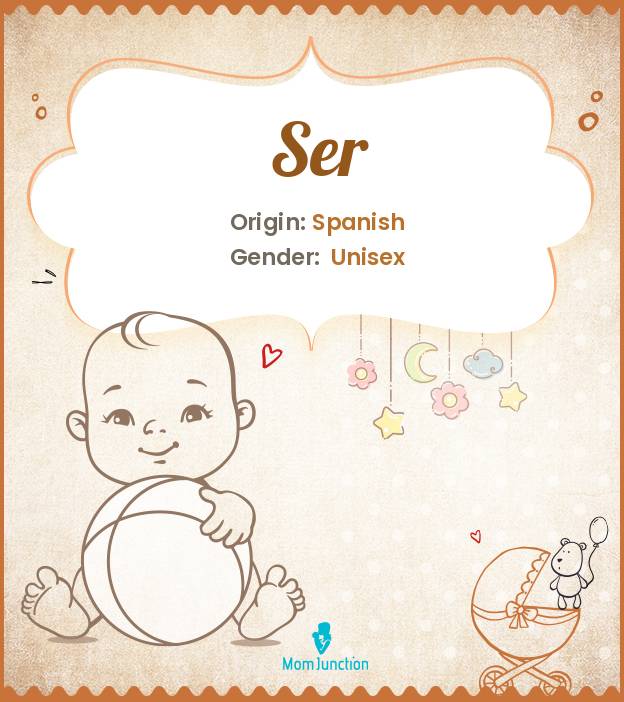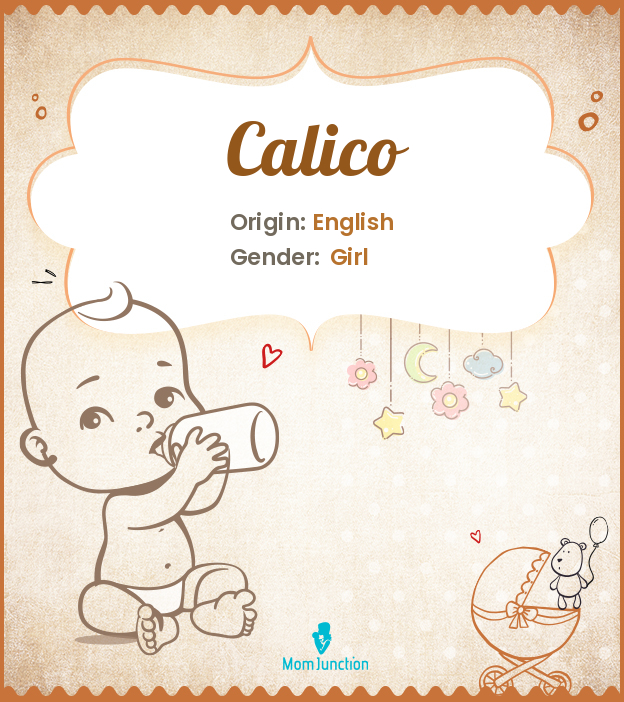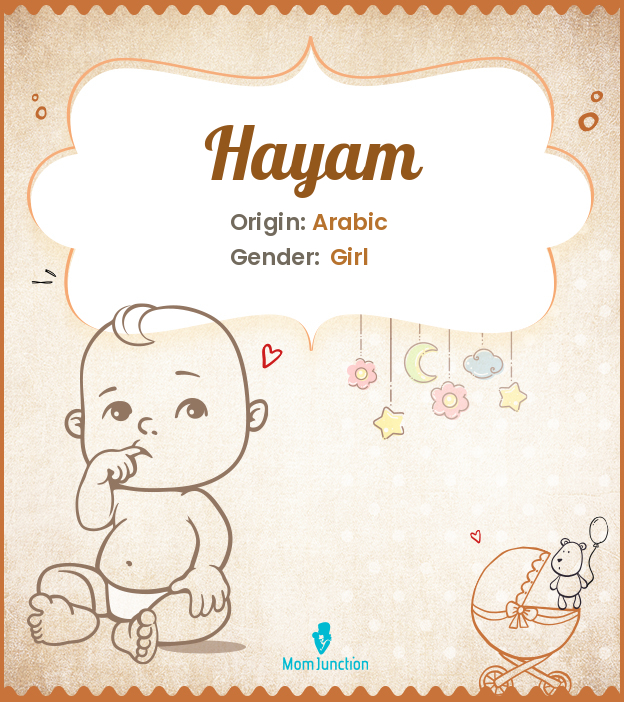
Image: Shutterstock

Colombian last names reflect the nation’s historical background and blend of various cultures. Spanish colonists introduced the custom of using surnames a long time ago. However, Colombia’s past is not limited to the Spanish. It has seen several indigenous people, languages and cultures that have contributed to Colombian last names. Naming customs have been influenced by African and indigenous cultures as well as other languages such as Portuguese, Basque, Galician, and Arabic. Names like Mina with African origins and Zapata with indigenous roots are some examples.
In Colombia, selecting a last name is frequently a reflection of one’s occupation, family background, or place of origin. Names of immigrants were sometimes chosen for social position or to blend in better with the local population. Colombian names usually follow the Spanish naming conventions and have two last names, one that denotes the paternal family and one that denotes the maternal side. Last names in Colombia may also include the prepositions de, el, la, los, or las (1).
The last names Garcia, Martinez, Gonzalez, Ramirez, and Lopez are common in Colombia. These display a significant Spanish influence. From the frequently-used Aguirre to the rarely-used Sastra, these last names display the rich culture of Colombia. In this post, we explore the top Colombian surnames or last names with meanings to get a better insight into the history, tradition, and culture
Key Pointers
- Colombian last names are mostly derived from Spanish, though they have other roots such as Portuguese, English, and Arabic.
- Colombians follow Spanish naming conventions for their last names, too.
- Last names like Diaz, Peña, Lopez, and Mebarak have found worldwide popularity.
- Colombian last names are popular in several other Hispanic and Latin American countries.
Colombian Last Names
From the most common to the rarest, these Colombian last names cover all occupational, habitational, and topographic names.
Common Colombian Last Names
Some surnames are so well-known in Colombia that they are almost synonymous with the country.
1. Acosta
The Spanish form of Da Costa, these surnames are derived from Costa, which means ‘riverbank,’ ‘slope,’ or ‘coast.’ Cuesta is a variant of Acosta.
2. Aguirre
Derived from the Basque word ageri, this surname means ‘open,’ ‘cleared,’ or ‘prominent.’ It was usually given to a person who lived in an open area.
3. Alarcón
Pronounced as ah-lahr-KON, this surname was derived as a habitational one. Alarcón was the name of a fort in the Iberian Peninsula and also means ‘fort.’
4. Alba
Alba was originally used as a nickname meaning ‘white.’ It has variants in Romanian such as Albescu and Albu.
5. Alcala
Also spelled as Alcalá and Alcalà, this surname is considered to be a habitational one. It was derived from the names of several towns with the same name and has Arabic roots meaning ‘fortress,’ ‘fortification,’ or ‘citadel.’
6 .Altamirano
Altamirano is a habitational surname for a person from one of the several places named Altamira. It means ‘high viewpoint.’
7. Amaya
A Spanish surname with Basque origins, Amaya is a habitational name. It is derived from the name of a mountain and an ancient city in Burgos. Amaya is also a Japanese surname.
8. Andrade
Pronounced as un-dra-dee, un-DRAT, and un-dra-jee in different languages, Andrades is a habitational name derived from many areas of this name in Portugal and Galicia. Andrades, Andrada, De Andrade, Andreati, and Andrado are some of the variants of this surname.
9. Arana
Arana is a habitational name derived from any one of the three places of the same name. It could be a hamlet in the county of Trebiñu, a neighborhood in Gasteiz, or in the neighborhood of Bermeo.
10. Arce
Pronounced as AR-theh in European Spanish and AR-seh in Latin American Spanish, this surname means ‘maple tree’ in Spanish. It might be a topographical name for a person who lives near maple trees.
11. Arias
This surname is derived from the same given name that possibly has a Germanic origin. Incidentally, Arias is also a Sephardic Jewish surname.
12. Armás
Also written as Armas, this spanish surname was derived as an occupational name for an arms maker or soldier. It originates from the Spanish word armas, which means ‘arms’ or ‘weapons.’
13. Avila
Also spelled as Ávila in Spanish, this habitational name is derived from the city of Ávila in Spain. It is possibly of Punic or Celtic origin.
14. Baeza
Another habitational Spanish surname used in Colombia, this last name is derived from a place called Baeza in Andalusia in Spain. There is another place with this name in the province of Jaén, too.
15. Baquero
A variant of Vaquero, this surname is common in Colombia. It is considered to be an occupational name derived from the Spanish word vaquero, which means ‘cowboy.’
16. Barragan
Also spelled as Barragán in Spanish, Barragan was originally used as a nickname for a strong or brave man. It is also an occupational name for a maker or merchant of a certain type of cloth.
17. Barreto
Barreto is derived from the Spanish word barreto, which means ‘cap.’ It originated as an occupational name for a cap maker or seller.
18. Barrios
A habitational surname, Barrios is derived from any of the several places named with the Spanish element barrio, which means ‘outlying suburb’ or ‘slum.’ It has Arabic roots and means ‘suburb’ or ‘dependent village.’
19. Cepeda
Cepeda is believed to be derived from a nickname for a person from the region where vineyards are grown. It could also be an occupational surname.
20. Chacón
Also spelled as Chacon, this surname is one of the few Spanish names derived from animal names. Chacón is derived from the same Spanish word that means ‘gecko.’
21. Cortes
Also spelled as Cortés and Cortez, this surname means ‘polite’ or ‘courteous’ in Spanish. Its Italian counterpart is spelled Corti.
 Did you know?
Did you know?22. Fernández
Pronounced as fehr-NAN-deth in European Spanish and fehr-NAN-dehs in Latin American Spanish, this surname means ‘son of Fernando.’ It could have several meanings including ‘peace,’ ‘journey,’ and ‘daring.’
23. Gallego
Gallego is a habitational name that is derived from the place with the same name in Galicia, Spain. It is pronounced as ga-YEH-gho.
24. Gálvez
Pronounced as GAL-beth, this Spanish surname is considered to be a habitational one. It is derived from the town of the same name in Castilian, Toledo.
25. García
García is possibly derived from the Basque word hartz and means ‘bear.’ It is one of the most common surnames in Spanish-speaking countries. It is spelled as Garcia in the US and the Philippines.
26. Gómez
Pronounced as GO-mehs in Latin American Spanish, Gómez is the Spanish variant of Gomes. It has ancient Gothic roots and means ‘man.’
27. González
González is a possessive surname that means ‘son of Gonzalo’ in Spanish. It has Germanic roots which may mean ‘war,’ ‘salve,’ or ‘house.’
28. Guevara
Also spelled as Gebara and Guevarra, this surname is the Hispanicized form of Gebara, which is a habitational name for a person from the village of Gebara. The Argentine revolutionary Che Guevara was one of the most well-known people with this surname.
29. Hernández
Pronounced as ehr-NAN-dehs in Latin American Spanish, this Colombian surname means ‘son of Hernando.’ These names are derived from Ferdinand, which means ‘peace,’ ‘journey,’ or ‘boldness,’
30. Jiménez
Surprisingly, Jiménez has Hebrew roots and is related to Simon, which means ‘to hear’ or ‘to listen.’ It is also spelled as Giménez.
31. Lugo
Lugo is a Galician and Spanish surname often used as a Hispanic name. It is considered to be a habitational name from an eponymous city in Galicia and means ‘grove or ‘wood of Augustus.’
32. Martínez
Derived from Spanish, this Colombian surname means ‘son of Martin’ and is associated with the Roman god Mars. Martínez has several variants in other languages such as Martinov, Martí, Martinsen, Mortensen, and Martz.
33. Medina
Medina is a habitational name derived from the Arab city of the same name. It has Arabic roots and means ‘city’ in Spanish.
34. Mendoza
Mendoza is a popular Colombian surname. It is a habitational surname derived from a Basque place name and means ‘cold mountain.’
35. Molina
Molina means ‘mill’ in Spanish. It could be a topographic name or an occupational one.
36. Moreno
Derived from a nickname meaning ‘dark’ in both Spanish and Portuguese, this Colombian surname is considered to be a descriptive one. It is also spelled as Moore or Morin in English.
37. Muñoz
Muñoz is a patronymic that is derived from the medieval Spanish given name Muño. It has Latin and possibly even Germanic origins.
38. Navarro
One of the most common Hispanic surnames used in Colombia, Navarro is a habitational name derived from Navarre in northern Spain. It is possibly derived from the Basque word nabar, which means ‘brown.’
39. Ortiz
Pronounced either as or-TEETH or or-TEES, this surname means ‘son of Orti.’ It has Latin roots and could mean either ‘brave’ and ‘strong’ or ‘fortunate.’
40. Pérez
Also spelled as Perez, this surname means ‘son of Pedro.’ These surnames are associated with the name Peter and mean ‘stone.’
 Point to consider
Point to consider41. Rivas
Rivas is the Spanish form of the Italian surname Riva. It means ‘bank’ or ‘shore’ and is a topographic name for a person living by a river or lake.
42. Rojas

Image: Shutterstock
Pronounced as RO-khas, this surname is derived from Rojo. These last names are considered to be originally used as a nickname meaning ‘red.’
43. Rodríguez
Rodríguez means ‘son of Rodrigo’ in Spanish and has Germanic roots that mean ‘fame’ and ‘king.’ It has several variants including Rodrigo, Rodriguez, Rodriquez, and Ruiz.
44. Ramírez
Also spelled as Ramirez in English and Ramires in Portuguese, this surname means ‘son of Ramiro’ in Spanish. It is derived from Gothic elements and means either ‘wedge’ or ‘law.’
45. Ramos
Ramos is a topographical name that was originally used for a person who lived in a thickly wooded area. It is derived from Latin and means ‘branch.’
46. Salgado
A surname that originally was used as a nickname for a witty person, it is derived from Galician or Portuguese. It is pronounced differently in various languages.
47. Sánchez
Sánchez means ‘son of Sancho’ in Spanish and possibly means ‘saintly’ or ‘holy.’ It has several variants such as Sáez, Sanchez, Sancho, and Sanz.
48. Soler
Soler is a habitational name for a person from any of the several eponymously named places. It means ‘ground’ or ‘floor.’
49. Suárez
One of the several possessive surnames used in Colombia, Suárez means ‘son of Suero,’ meaning ‘heavy’ or ‘serious.’ Juárez, Suero, Soares, and Suarez are some of its variants.
50. Torres
Torres is a surname that has Latin roots and means ‘tower.’ It is usually given to a person who lived in or near a tower.
51. Valencia
A habitational name, this surname is directly taken from the Spanish city of the same name. It has roots in Latin and means ‘strength’ or ‘vigor.’
52. Vega
Pronounced as BEH-gha, this Colombian surname is derived from the Spanish word vega. It may be of Basque origin and means ‘meadow’ or ‘plain.’
53. Villalba
Villalba is a habitational surname derived from various places with the same name. It means ‘white town’ and is pronounced as bee-YAL-ba.
Popular Colombian Last Names
Popular Colombian last names are not only commonly used, they have also gained popularity due to being associated with celebrities and well-known individuals. This list covers some of the most popular last names in Colombia.
54. Acevedo
Derived from the Spanish word acebedo, this surname means ‘holly grove.’ It may be considered to be a topographic name for a person who lived near holly trees.
55. Agudelon
The surname is used in many Hispanic countries besides Colombia. It is a habitational surname derived from a place named Agudelo in Galicia, Spain, and means ‘peak.
56. Álvarez
Also spelled as Alvarez in Spanish, this surname means ‘son of Álvaro.’ It has Gothic roots and means ‘all aware’ or ‘all on guard.’
57. Arango
Arango is an Asturian-Leonese surname that is considered to be derived from the region of the same name in Asturia. A common variation of Arango is Aranjo.
58. Arbeláez
Also spelled as Arbélaez, this surname has Basque roots and is derived from Arbelaitz. It is a topographic name that means ‘slate rock.’
59. Arévalo
Arévalo is a habitational name derived from any of the places of the same name in Avila and Soria. These places are considered ancient and existed in the pre-Roman times.
60. Aristizábal
Derived from Ariztizabal, this surname has Basque roots. It is a topographic name for a person who lived near a large oak wood.
61. Ariza
Ariza is a habitational surname that is derived from a place with the same name in Zaragoza, Aragon. It is also a Catalan surname.
62. Armero
Derived from a nickname, Armero comes from the Spanish word artero, which means ‘artful’ or ‘cunning.’ Over time, it transitioned into a last name used in Colombia and other Hispanic countries.
63. Balvin
Balvin is considered to be a variant of the Spanish surname Balbin. It is derived from the Latin word balbus, which means ‘stammering.’
64. Bedoya
Derived from Bedoia, this surname is a habitational name derived from Bedoña in the Gipuzkoa province. It means ‘pasture’ or ‘grazing.’
65. Beltran
Also spelled as Beltrán in Spanish, this surname is derived from ancient Germanic elements and means ‘bright,’ ‘famous,’ and ‘raven.’ It is also a Catalan and French surname.
66. Bernal
Bernal is a variant of Bernaldo, a Galician and Asturian surname. These last names come from Bernard, which means ‘bear’ and ‘brave.’
67. Betancourt
Betancourt is an unusual last name that is a variant of either Bethencourt or Bettencourt. They are habitational names originating from northern France and mean ‘courtyard’ or ‘farm.’
 Trivia
Trivia68. Botero
Originally used as an occupational name, Botero is derived from the same Spanish word. It is the name given to either a bottler or a boat owner.
69. Buitrago
Another last name that is used as a habitational name, Buitrago is derived from two places. It could be a town in Castile in El Campo de Gómara or in Madrid.
70. Caballero
Pronounced as ka-ba-YEH-ro, this surname is derived from the Spanish word caballero, which means ‘knight.’ It originated as a nickname before transitioning into a last name. It is considered to be a variant of Chevalier.
71. Caicedo
Another habitational name, this surname could be either derived from Caicedo de Yuso or Caicedo Sopeña in Basque. These towns are situated in the Araba or Álava province of Basque country.
72. Calderon
Alternatively spelled as Calderón in Spanish, Calderon is an occupational surname. It is derived from Late Latin and was usually given to a person who made, repaired, or sold cauldrons or kettles.
73. Camargo
Also spelled as Camarguillo, this surname is a habitational name for a person from an eponymous place in Andalusia. It is pronounced as kə-MAR-go in Spanish.
74. Cano
Pronounced as KA-no, this surname is derived from the Latin word canus, which means ‘white-haired’ or ‘old.’ It was originally used as a nickname.
75. Cárdenas
Cárdenas is a habitational name derived from several towns in Almeria and La Rioja in Spain. These names come from the Spanish word cárdeno, which means ‘blue’ or ‘purple.’
76. Cardona
Cardona is a habitational name derived from a place in Barcelona province. It is also used as a Catalan surname.
77. Carvajal
Pronounced as kar-ba-KHAL, this surname is a variant of Carbajal. It is a habitational name for someone from one of the several places of the same name in León, Asturias, or Zamora in Spain. It is considered to be of pre-Roman origin.
78. Castañeda
Another habitational name, Castañeda is derived from any of the various places with the same name in Spain. It is derived from a Spanish word that means ‘chestnut grove.’
79. Castaño
Castaño is a topographic surname for someone who lived near a chestnut tree. It means ‘chestnut tree’ in Spanish and Galician and is used as a surname in both these languages.
80. Castillo
Pronounced as kas-TEE-yo, this surname is the Spanish variant of Castle and means ‘castle.’ It is spelled as Castell and Castelo in different languages.
81. Castro
Castro is a Spanish and Portuguese surname that is used in several Hispanic countries including Colombia. It means ‘castle’ and is usually given to a person who lived near a castle. One of the most famous bearers of this name was Fidel Castro, a revolutionary and former president of Cuba.
82. Cervantes
Cervantes could be an occupational surname derived from the Old Spanish word servanto, which means ‘servant,’ or it could be derived from a nickname from ciervo, which means ‘stag.’ Spanish novelist Miguel de Cervantes is one of the most notable personalities with this last name. He is the author of Don Quixote and is considered to be one of the greatest writers in Spanish.
83. Contreras
Another habitational name, this surname is derived from the name of a town in Burgos in Spain. It has roots in Late Latin and means ‘area opposite,’
84. Cordoba
Córdoba is a habitational name given to a person from the city of Cordova in Spain. This ancient name has Phonecian roots and means ‘Juba’s city,’ referring to King Juba I of Numidia.
85. Coronado

Image: Shutterstock
A surname that sounds royal, Coronado means ‘crowned.’ It could have originated as a nickname for a person whose head had been tonsured or a person behaving in an imperious manner.
86. Correa
Correa is an occupational surname that has Portuguese roots. It is the Spanish variant of Correia and means ‘leather strap’ or ‘belt’ and is given to a person working with leather products.
87. Cruz
Cruz is a common surname in Spanish-speaking countries. It is the variant of Cross and is used as a Spanish and Portuguese surname, often denoting the crucifix but also a crossroads. Penélope Cruz is a notable personality with this last name.
88. Cuadrado
Another last name that originated as a nickname, Cuadrado was given to a thick person. It means ‘square’ in Spanish.
89. Delgado
Delgado is a popular Colombian last name that is derived from the Latin word delicatus, which means ‘delicate,’ ‘tender,’ or ‘charming.’ It was used as a nickname meaning ‘thin’ in Spanish and Portuguese.
90. Díaz
Also spelled as Diaz, this surname means ‘son of Diego’ in Spanish. Diego and Díez are its variants. One of the most famous personalities with this name is American actress Cameron Diaz.
91. Domingo
Pronounced as do-MEENG-go, this surname is derived from the same Spanish given name. These names come from Dominic and mean ‘of the Lord.’ In Spanish, domingo is the word used for Sunday.
92. Duarte
Another surname derived from the same given name, Duarte is the Portuguese variant of Edward. It contains Old English elements and means ‘rich guard.’
93. Escobar
Escobar could be either a topographic name or a habitational one. As a topographic name, it is derived from the word escoba, which means ‘broom.’ Meanwhile, as a habitational name, it is derived from two places named Escobedo in Santander province.
94. Florez
Also spelled as Flórez in Spanish, it is probably a patronymic with Visigothic roots. It means ‘lord’ or ‘master’
95. Fonsi
Considered to be a patronymic or plural form of Fonte, this surname is a toponymic for someone who lived near a spring or well. Fonsi is more popularly used as an Italian surname.
96. Franco
Franco is the Spanish variant of Frank, referring to the Germanic tribe, the Franks (2). It is also used as an Italian and Portuguese surname.
97. Gaitán
Also spelled as Gaitan, this surname originated from the Spanish word gato, which means ‘cat.’ It could have possibly been used as a nickname for a person who had cat-like qualities of movement or posture.
98. Galán
Another surname that was originally used as a nickname, Galán means ‘prince.’ It was possibly given to a young person with regal bearing.
99. Gallo
Gallo is yet another surname that was originally used as a nickname. It has Latin roots and means ‘rooster.’ It was given to a proud person.
100. Garzon
Also spelled as Garzón, this surname originated as a nickname. It is derived from the French word garçon and means ‘boy’ or ‘lad.’ Alternatively, it could be derived from the Spanish word garza, meaning ‘heron,’ or it could be a habitational name from Andalusia.
101. Gaviria
The Castilianized variant of Gabiria, this surname is a habitational one. It means ‘near the smith’s hammer.’
102. Gil
Derived from the same given name, this surname means ‘young goat.’ It is pronounced as KHEEL in Spanish.
103. Giraldo
Giraldo is derived from the ancient Germanic given name Gerald. It means ‘power of the spear’ and it is also used as an Italian surname.
104. Grisales
Grisales is a Hispanic surname predominantly used in Colombia. It is considered to be one of the most common surnames among Hispanic and Latino people.
105. Guerrero
Pronounced as geh-REH-ro, this surname is considered to be an occupational name. It means ‘warrior’ in Spanish and was usually given to a soldier.
106. Gutierrez
Also spelled as Gutiérrez, this surname means ‘son of Gutierre.’ These names are derived from the Germanic name Walter and mean ‘power of the army.’
107. Guzmán
Guzmán is a habitational surname derived from the town of the same name in Burgos, Spain. It has Germanic origins and means ‘a Great man.’
108. Henao
Another habitational name, Henao originated from the Belgian province of Hainault. From the Netherlands to Latin America, this surname has traveled a long distance.
109. Herrera
Another popular surname in Colombia, Herrera is the Spanish variant of Ferreira. It is a topographic name for a person from a town near an iron mine as the Latin word ferrum means ‘iron.’
110. Hoyos
Hoyos is a Spanish habitational name from several places with the same name in Ávila, Cáceres, and Cantabria. It is derived from the plural of hoyo, which means ‘pit’ or ‘hole.’
111. Hurtado
Hurtado was originally used as a nickname from the Spanish word hurtar, which means ‘to rob’ or ‘to conceal.’ It was probably given to an illegitimate or kidnapped child, who was concealed.
112. Ibargüen
Also spelled as Ibarguen, this surname is a habitational one. It is derived from the town of the same name in Zeanuri.
113. Jaramillo
Another habitational name, Jaramillo is derived from two places in the Burgos province of Spain. It could come from either Jaramillo de la Fuente or Jaramillo Quemada.
114. Lara
Lara is another habitational name that is derived from a village in the Burgos province of Spain. It might have Latin roots and could mean ‘household god,’ ‘house,’ or ‘home.’
115. León
León could be a habitational name derived from the city of León in Spain and derived from the Latin word meaning ‘legion.’ Alternatively, it could be derived from the given name León, which means ‘lion.’
116. Lleras
Derived as a plural form of the Spanish surname Llera, this habitational surname is derived from any of the several places called Llera in Badajoz and Asturias. It is also used as an Asturian surname.
117. Llosa
Llosa is an unusual surname that is considered to be a toponymic from losa, which means ‘slate.’ It was given to a person who lived in a place where this stone is present.
118. Londoño
Though this surname’s spelling is close to London, it is actually derived from a place called Londoño in A Coruña province in Galicia. It is a habitational surname.
119. López
Also spelled as Lopez and Lopes, this surname means ‘son of Lope’ in Spanish. It has Latin roots and means ‘wolf.’ Jennifer Lopez is an American actress, singer, and dancer and is one of the most well-known people with this surname.
120. Lozano
Another last name derived from a nickname, Lozano means ‘healthy,’ ‘exuberant,’ or ‘lively.’ It was used as a nickname for an elegant or haughty person.
121. Marin
Derived from the same given name, Marin could either mean ‘of the sea’ or it could be associated with the Roman god Mars. It is used in several other languages with slight variations such as Marinov, Marinos, and Marini.
122. Márquez
Also spelled as Marcos, Márquez means ‘son of Marcos’ and is associated with both the Bible (Mark) and the Roman god Mars. A notable bearer of this surname was Gabriel García Márquez, a Colombian novelist, known for his books such as One Hundred Years of Solitude and Love in the Time of Cholera (translated in English).
123. Mebarak
Mebarak is a Muslim surname with Arabic roots. It is derived from the given name Mubarak and means ‘blessed’ or ‘fortunate.’ Shakira Mebarak, a Colombian singer and songwriter known mononymously as Shakira, is one of the most famous people with this surname.
124. Mejía

Image: Shutterstock
Also spelled as Mejia, this surname was possibly derived from a nickname from the Spanish word Mesías, which means ‘Messiah.’ It is also used as a Galician surname.
125. Mendez
Pronounced as MEHN-dehs in Latin America, this surname is a variant of Menéndez and means ‘son of Menendo.’ These names have Gothic elements and mean ‘great tribute’ or ‘immense compensation.’
126. Meneses
Meneses could be a habitational name for several places in Palencia and Burgos provinces. It is also used as a Caribbean surname.
127. Meza
As a Spanish surname, Meza is a variant of Mesa, which is a habitational name from La Mesa meaning ‘table.’ Meza is also used as a Slovenian surname.
128. Miranda
Miranda is a popular surname in several Hispanic and Latin American countries. It is a habitational surname derived from several places so named in Spain, Portugal, and Italy. It could have Latin roots and mean ‘admirable’ or ‘wonderful.’ Lin-Manuel Miranda is an American songwriter, actor, and singer, known for creating several famous Broadway musicals such as Hamilton and movie scores such as Moana and Encanto.
129. Mocaná
Also spelled as Moraña in Galician, this surname is a habitational name for a place called Moraña in Pontevedra province. Mocaná is also used as an Italian surname.
130. Montoya
Montoya is a habitational surname derived from a village in Álava, Spain. It possibly means ‘mountain’ or ‘hill.’ A popular fictional character with this last name is Inigo Montoya from the novel The Princess Bride. In the 1987 movie adaptation, the role was played by Mandy Patinkin.
131. Mora
Spelled as Moreira in Portuguese, this surname is derived from the Spanish word mora, which means ‘mulberry.’ It has Latin origins.
132. Morales
A variant of Mora, Morales is also spelled as Moralez. It is derived from the Spanish word moral, which means ‘mulberry tree.’ Miles Morales is a fictional character who appears in the Spider-Man comic books and animated series. He is a superhero with enhanced abilities.
133. Morillo
Another habitational surname, Morillo is derived from Morillo de Monclús in Huesca province. It is derived from the word moro, which means ‘moor.’
134. Mosquera
Mosquera is a topographic name for a person who lived in a place with excessive flies or mosquitoes. It is derived from mosca, which means ‘fly.’ It could also be a habitational surname from several places with this name in Catalonia, Valencia, and Andorra.
135. Murillo
Another habitational name, Murillo, is derived from several places so named in Navarre, La Rioja, and Zaragoza. It is derived from the Spanish word muro, which means ‘wall.’
136. Núñez
Pronounced as NOO-nyehs, this surname means ‘son of Nuno.’ It has Latin roots and means either ‘ninth’ or ‘grandfather.’ Vasco Núñez de Balboa was a Spanish explorer and conquistador in the 16th century. He was the first European to see or reach the Pacific Ocean in 1513 (3).
137. Orozco
Orozco is a habitational surname derived from the Bilbao province in Basque region. Orosco is a variant of Orozco.
138. Ortega
Another common surname in Spanish-speaking countries, Ortega is a habitational surname derived from one of the several villages with the same name. It is derived from the Spanish word ortiga, which means ‘nettle.’ Jenna Ortega is an American actress with this last name. She is known for her appearances in several series and movies including Stuck in the Middle and Wednesday.
139. Osorio
Pronounced as o-SO-ryo, this surname is derived from the same given name. It could mean ‘mountain’ and is also used as a Portuguese surname.
140. Osorno
Another habitational surname, Osorno, is derived from a place of the same name in Palencia province. Count of Osorno was a hereditary peerage title in Spain. It was given to Gabriel Fernández Manrique, 1st Duke of Galisteo in 1445.
141. Ospina
Ospina is a Hispanic surname mainly used in Colombia. It is the Castilianized form of a Basque nickname derived from the Spanish word ozpin, which means ‘vinegar.’
142. Pacheco
Used both as a Spanish and Portuguese surname, Pacheco is believed to be a diminutive of the given name Francisco. It has roots in Late Latin and means ‘Frenchman.’
143. Padilla
Padilla is an interesting surname that is considered as a topographic or habitational name. It is derived from the Spanish word padilla, which means ‘shallow dish’ and refers to a slight depression in the landscape.
144. Pajón
Spelled alternatively as Pavón in Spanish, this Colombian surname was derived from a nickname. It originated from the Spanish word pavón, which means ‘peacock,’ and was possibly given to a proud or vain person.
145. Parra
The surname of Parra is considered to be a topographic one. It means ‘vine’ or ‘trellis’ in Spanish and was possibly given to a person who lived near a vineyard.
146. Pastrana
Pastrana is a habitational surname for people from the town of the same name in Manchego province in Spain. It is commonly used in Colombia and other South American countries.
147. Patiño
Also spelled as Patino, this surname was originally used as a nickname for a person who waddled. It is derived from the Spanish and Galician word pato, which means ‘duck.’
148. Peña
Peña is a topographic name for a person who lived near a jutting rock. It is derived from the same Spanish word and means ‘rock’ or ‘cliff.’ Michael Peña is a famous American actor with this last name. He is known for appearing in several movies and TV series such as Ant-Man and Narcos: Mexico.
149. Perdomo
Perdomo is the Spanish variant of Prudhomme, a French surname. It is derived from the French word prud’homme, which means ‘expert,’ wise,’ or ‘sensible.’
150. Pineda
Yet another habitational name, Pineda is derived from several places with similar names in Barcelona, Cuenca, and Burgos provinces. It is derived from the Spanish and Catalan word pineda, which means ‘pine forest.’
15. Pombo
Pombo is a surname that was originally used as a nickname. It was used to describe a mild and inoffensive person and is derived from the word pombo, which means ‘dove.’
152. Pumarejo
Another habitational name from a place named Pumarejo de Tera in Zamora. It is derived from the Spanish word pomar, which means ‘orchard’ or ‘apple garden.’
153. Quiceno
Quiceno is a Hispanic surname predominantly used in Colombia. It is an altered form of Quicena, which is a habitational name.
154. Quintana
Pronounced as keen-TA-na, this surname is a topographical name for a person who lived on a piece of land where the rent was a fifth of its produce. It has Latin roots and means ‘fifth.’
155. Quintero
Another habitational name, Quintero, is derived from a place so named in Galicia. It is derived from the Galician word quinteiro, which means’ farmstead,’ ‘square,’ or ‘plaza.’
156. Rendón
Rendón was possibly used as a nickname before transitioning into a last name. It is derived from the Spanish phrase de rondón, which means ‘unexpectedly’ or ‘rashly.’
157. Restrepo
Also used as an Asturian-Leonese surname, Restrepo is a habitational name. It is a habitational name derived from a place of the same name in Asturias, Spain. Carlos Alberto Lleras Restrepo was the name of the 22nd President of Colombia.
158. Reyes
Reyes is considered to be the Spanish variant of the English surname Rey. It means ‘king’ in Old French, Spanish, and Catalan, and has roots in Latin. Reyes is a common surname in most Hispanic and Latin American countries.
159. Rincón
Another habitational name, Rincón is derived from any of the several places called El Rincón in Spain. It has Arabic roots and means ‘corner.’
160. Rios
Variously written as Del Rio and Ríos, this surname is a topographic one. It was given to a person who lived near a river and also means ‘river.’
161. Ripoll

Image: Shutterstock
Derived from the same Catalan name, this surname is common among Hispanic and Latinx people. It is derived from Latin and means either ‘dark gray river’ or ‘river of poplars.’
162. Rivera
Alternatively spelled as Rivas and Rivero, Rivera is a popular Colombian surname. It is derived from the Spanish word ribera, which means ‘bank or ‘shore.’
163. Robayo
Originally used as a nickname, Robayo is derived from the Spanish word robalo, which means ‘sea bass’ or ‘snook.’ It is one of the more popular surnames in Colombia.
164. Romero
Romero is a Spanish surname that is derived from the same Spanish word meaning ‘pilgrim to Rome.’ It is spelled as Romà, Romeijnders, Rome, and Romagna in different languages.
165. Rueda
Rueda is an occupational name that is used in several Hispanic countries. It is derived from the same Spanish word meaning ‘wheel.’
166. Ruiz
Pronounced as RWEES in Latin America, this surname means ‘son of Ruy’ in Spanish and means ‘powerful ruler.’ Its variants include Rodrigo and Rodríguez. One of the most well-known personalities with this name was Pablo Ruiz Picasso, the renowned Spanish artist.
167. Salazar
Derived from the Spanish word sala, which means ‘hall,’ and the Basque word zahar, which means ‘old,’ this surname is commonly used in Colombia. It could also be a habitational surname derived from the town of the same name in Burgos province. This surname recently became popular as a first name when it appeared in the Harry Potter books as Salazar Slytherin. Rosario Salazar is another fictional character who appears in the sitcom Will & Grace.
168.Saldarriaga
Saldarriaga is the Castilianized form of Zaldarriaga. It is a topographic name which means ‘wood,’ holt,’ and ‘stoney.’
169. Santos
Considered to be one of the holier names in Spanish, Santos means ‘saint.’ It has Latin roots and is also used as a Portuguese surname.
170. Sepúlveda
Pronounced as seh-POOL-beh-dha, this surname is a habitational one. It is derived from the name of the Sepúlveda valley in the mountains of Segovia.
171. Sierra
Sierra is a topographic name for a person who lived on a hill range or hill. It is derived from the Spanish word sierra, which means ‘mountain range,’ and is alternatively spelled as Serrano.
172. Silva
Silva is derived from the Spanish or Portuguese word silva, which means ‘forest.’ It is a common surname in several languages and has widespread usage as far as countries in Africa and Asia.
173. Solano
Derived from the Spanish word solano, which means ‘a place exposed to the sun,’ Solano is considered to be a habitational name. It is derived from any of the several Spanish places with the same name. The patron saint of Argentina, Bolivia, Chile, Paraguay, Peru, and Montilla, Saint Francis Solano, was one of the most notable bearers of this surname.
174. Soto
Soto is a short Colombian surname that means ‘grove of trees’ or ‘small forest’ in Spanish. It has Latin roots and is considered to be a topographic name. A book named Carrie Soto is Back by Taylor Jenkins Reid is a popular occurrence of this last name.
175. Tovar
Tovar is a Spanish surname that is a variant of Tobar. These names are habitational and are derived from any of the places named El Tobar in Burgos province.
176. Uribe
Another topographic name, Uribe, is derived from the Basque words uri and be, which mean ‘lower part of a village.’ Alternatively, Uribe could also be a habitational name from the town of the same name in Biscay.
177. Valderrama
Valderrama may be a habitational name that is derived from places of the same name in Burgos province. It could also be derived from the Latin word vallis and derramare, which mean ‘valley which is spread out.’
178. Vanegas
A variant of Banegas and Benegas, these surnames are derived from the Arabic or Jewish word ben, which means ‘son.’ Vanegas is a patronymic that has medieval origins.
179. Vargas
Pronounced as BAR-ghas, this surname is derived from the Spanish and Portuguese dialect word varga. It means ‘slope,’ ‘flooded field,’ ‘pastureland,’ or ‘hut,’ and could be a topographical surname.
180. Vasquez
Also spelled as Vásquez, this surname means ‘son of Vasco.’ It is derived from medieval Spanish and possibly means ‘crow’ in Basque.
181. Velasco
Derived from the same given name, Velasco is also associated with Vasco. Vásquez, Vázquez, Velásquez, and Velázquez are its variants.
182. Velásquez
Also spelled as Velasquez and Velazquez, this surname is one of the most popular Hispanic and Latino surnames. It is one of the several surnames associated with Vasco.
183. Velez
Considered to be a variant of the Portuguese surname Velêz, this last name is a habitational one. It possibly originated from the region of Vellés in Salamanca.
184. Vergara
The Castilianized form of Bergara, this habitational surname originated from a place with the same name in Basque country. Sofia Vergara is one of the most well-known personalities with this surname. She is a Colombian supermodel and actress and is known for her role as Gloria Delgado-Pritchett in the sitcom series Modern Family.
185. Vives
Vives is a variant of the Catalan surname Vivas. It is derived from a byname that means ‘may you live.’
186. Zapata
Pronounced as sa-PA-ta, this surname is an occupational one for a shoemaker. It is derived from the Spanish word zapato, which means ‘shoe.’
187. Zuluaga
A variant of Zuloaga, this surname is habitational. It is derived from a place with the same name in Biscay and means ‘a group of openings.’
Unique Colombian Last Names
Some last names are uniquely used in Colombia. These surnames are mostly occupational and topographical and are proudly owned by Colombian residents.
188. Abarca
Pronounced as a-BAR-ka, this surname is derived from a type of leather-soled shoe. It was usually given to a person who made or sold such footwear.
189. Abascal
Abascal is a topographic surname with Basque roots. It means ‘priest’s street’ and was possibly given to a person who lived or used such a street regularly.
190. Abreu
Abreu is a unique surname used in Colombia and other South American countries. It is possible that it has a Germanic origin.
191. Achagua
Also written as Achawa and Axagua, this surname is derived from a clan name. This clan is indigenous to Colombia and Venezuela.
192. Aguilar
Aguilar is one of the most commonly used surnames in Spanish-speaking countries. It is a habitational surname that was derived from the Spanish word águila meaning ‘eagle.’
193. Aiza
Derived from the Basque word aitz, this surname means ‘rock’ or ‘stone.’ It is possibly a topographical name.
194. Andoque
Andoque is also derived from the same indigenous clan name. The name means ‘ax people.’
195. Araújo
Araújo is a habitational surname for a person from any of the places with the same name in Portugal. Araujo and Araullo are its variants.
196. Arhuaco
Yet another clan name, the Arhuaco are the Chibchan-speaking indigenous people of Colombia in the Sierra Nevada de Santa Marta region. This tribe is also called Aruaco, Bintucua, and Ica, among other names.
197. Bari
Bari is the name of a tribe in Colombia who live in the Catatumbo River basin in Norte de Santander Department. Incidentally, Bari is also a surname with Arabic origins.
198. Bustos
Pronounced as BOOS-tos, this surname is a variant of Busto. It is a habitational name derived from any of the several towns so named in Spain and Italy. It has Late Latin roots and means ‘ox pasture.’
199. Capilla
The Spanish variant of Kappel, this surname could be an occupational or topographic one. It was given to a person who lived near or worked at a chapel and is derived from the Late Latin word cappella meaning ‘cape.’
200. Cauca
Cauca is an Amerindian surname used in several countries in South America. It is derived from a Castilianized form of ch’awka, which means ‘liar’ in Quechua or a homonymous Quechuan name for the Andean sparrow or finch.
201. Chaves
Also spelled as Chávez in Spanish, this surname is derived from the name of a Portuguese city. These names come from the Roman name Flavius, which means ‘golden’ or ‘yellow-haired.’
202. Cuéllar
Derived from the name of the town of the same name in Segovia province, Cuéllar is considered to be a habitational surname. It is derived from the Latin word collis, which means ‘hill.’
203. Del Bosque
Pronounced as dhehl-BOS-keh in Spanish, this Colombian surname means ‘of the forest.’ It is a toponymic and is also written as Bosque, Bos, and Bosch in different languages.
204. De la Fuente
Also spelled as Fontana and Fuentes, this surname is a topographic name that means ‘of the fountain’ in Spanish. De La Fontaine, Fontaine, and Fontana are its variants in other languages.
205. Elizondo
Another topographic name, Elizondo was given to a person who lived close to a church. It is derived from the Basque words eleiza, which means ‘church,’ and ondo, which means ‘near.’
206. Estrada
Interestingly, Estrada is the Spanish form of the English surname Street. It has Latin roots and means ‘Roman road.’
207. Estévez
Pronounced as ehs-TEH-behs in Latin American Spanish, this surname means ‘son of Esteban.’ These names are Spanish forms of Stephen, which means ‘crown’ or ‘wreath.’
208. Ferro
Ferro means ‘iron’ and is derived from the Latin word ferrum. It was derived as an occupational name for someone who worked with iron.
209. Hidalgo
Derived from a contraction from the Spanish phrase hijo de algo, which means ‘son of something,’ Hidalgo originated as a nickname. It means ‘nobleman.’
210. Holguín
Also spelled as Olguín, this surname originated as a nickname. It is derived from the Spanish word holgar, which means ‘to rest’ or ‘to enjoy oneself.’
211. Iñíguez
A variant of Íñiguez, this surname means ‘son of Íñigo’ in Spanish. It has Basque roots and means ‘my.’
212. Loyola
Loyola is a habitational surname that is derived from the place of the same name in Basque Country in Spain. It has Basque origins and means ‘mud.’ One of the most famous people to come from this place was Saint Ignatius of Loyola, the founder of Jesuits.
213. Mateus
Derived from the same given name, Mateus is a form of Matthew. It means ‘gift of God’ in Hebrew and is associated with the Bible.
214. Monte
Monte is the Italian, Portuguese, and Spanish variant of Monti. It is derived from Latin and means ‘mountain’ or ‘hill.’
215. Noguera
Noguera is the Spanish and Catalan variant of Noguiera. It is a topographical name that is derived from the same Galician and Portuguese word meaning ‘walnut tree,’
216. Ochoa
The Spanish form of Otxoa, this surname has Basque origins. It is derived from the word otso, which means ‘wolf.’
217. Ojeda
Ojeda could be a topographic name. It is derived from the name of the Ojeda river in Spain and is possibly associated with the Latin word folia, which means ‘leaves.’
218. Olmo
Also spelled Del Olmo and Olmos, this surname means ‘elm tree’ in Spanish. It was given to a person who lived near such a tree.
219. Oquendo
Oquendo is a habitational name derived from the town of Okondo in Álava, Spain. It possibly has Basque origins and means ‘elbow.’
220. Orellana
Another habitational name, Orellana, is derived from two towns of the same name in Badajoz, Spain. These names are possibly derived from Aureliana, which means ‘of Aurelius’ and means ‘golden’ or ‘gilded.’
221. Pantoja
Pantoja is a habitational name for a person from the town of Pantoja in Toledo, Spain. Antonia Pantoja, a Puerto Rican educator and social worker, is considered to be one of the most famous bearers of this surname. Another notable personality is Cristina Pantoja-Hidalgo, an award-winning Filipina author.
222. Paredes
A topographic surname, Paredes was given to a person who lived near a wall. It is derived from the Portuguese word parede and the Spanish word pared, both of which mean ‘wall.’
223. Porras
Porras is a surname that was originally used as a nickname. It means ‘club’ in Spanish and Catalan and has Latin roots.
224. Quirós
Pronounced as kee-ROS, this habitational name was derived from one of the several places with this name in Spain. It may have come from the Galician word quieroa, which names ‘heather.’
225. Rana
Rana is another surname that was originally used as a nickname. It means ‘frog’ in Italian and Spanish. Incidentally, Rana is also an Indian surname.
226. Robledo
A topographic name, Robledo means ‘oak wood’ in Spanish. It is derived from the Spanish word roble, which means ‘oak.’
227. Salamanca
Pronounced as sa-la-MANG-ka, this surname is considered to be a habitational one. It is derived from the city of the same name in western Spain.
228. Salvador
Used as both a Spanish and Portuguese surname, Salvador is derived from the same given name. It is derived from Late Latin and means ‘savior.’
229. Salinas
Salinas is an occupational name for a salt worker or for a person who lived near salt pans. It is derived from the Latin word sal, which means ‘salt.’
230. Sanz
Derived from the given name Sancho, this surname means ‘saintly’ or ‘holy.’ It has several variants such as Sáez, Sánchez, Sanchez, and Sancho.
Rare Colombian Last Names
Rare Colombian surnames may be hard to come across, but once you find them, they are difficult to forget. This list includes some of the rarer Colombian last names.
231. Aboleda
Derived from the Spanish word arboledaa, which means ‘grove of trees,’ Aboleda is a topographic name for a person living near a grove. Alternatively, it could also be a habitational name derived from places such as Caserio de Arboleda in La Rioja.
232. Alzate
Alzate is a topographic surname with Basque roots and means ‘alder port’ or ‘harbor.’ Alternatively, it could be a habitational name from Alzate in Navarre.
233. Delgadillo
A diminutive of Delgado, this surname means ‘thin’ in Spanish and Portuguese. It has Latin roots and was originally used as a nickname.
234. Echavarría
Echavarría is a variant of Echaverria, both of which are derived from Etxeberria. They are topographic of habitational names derived from Basque and mean ‘new house.’
235. Fonseca
Fonseca is a topographic surname for a person who lived near a dry spring. It has several variants including Fonseka, Afonseca, de Fonseca, and D’Afonseca. As Fonseca is also a Portuguese surname, it is also used among Christians in Sri Lanka and India.
236. Galé
Galé is a Colombian surname that is considered to be an occupational name. It is derived from the Portuguese word galé, which means ‘galleon’ or ‘warship.’
237. Lopera
Another habitational name, Lopera, is derived from any of the places of the same name in Granada and Jaén. It has Latin roots and means ‘place of wolves.’
238. Macías
Derived from the given name Mateo, Macías is a variant of Matthew. It means ‘gift of God’ and is associated with the Bible.
239. Manrique
Pronounced as man-REE-keh, this surname is derived from the same given name. It consists of Germanic elements and means ‘strong man.’
240. Montaño
A last name that originated as a nickname, Montaño means ‘from the mountain.’ It is also a topographic surname and is used in Italian, too.
241. Nariño
Nariño is a Colombian surname with Galician roots. It is a habitational name derived from the town of the same name in Niveiro, Val do Dubra.
242. Nascimento
Originally used as a religious byname, Nascimento is derived from the Late Latin word nascimentum, which means ‘birth’ or ‘nativity.’ It was usually given as a first name for children born on Christmas before transitioning into a last name.
243. Palacio
Derived from the Spanish word palacio, this surname means ‘palace.’ It was perhaps given for a person who lived in or worked at a palace.
244. Palma
Palma is a habitational name that is derived from any of the various places with a similar name. It has Latin roots and means ‘palm.’ Palma is also a Catalan, Galician, Portuguese, and Italian surname.
245. Palomino
Derived from Spanish, this surname means ‘squab’ or ‘young pigeon.’ It is derived from paloma, which means ‘dove.’
246. Pernía
Another habitational name, Pernía, is derived from a place called La Pernía in Palencia province. It is one of the rarely used surnames in Colombia.
247. Plata
Plata is considered to be a habitational name derived from places so named in Toledo and Cáceres provinces. Alternatively, Plata could be derived from the word plata, which means ‘silver.’
248. Polo
Derived from the same first name, Polo is a variant of Pable. These names are related to Paul, which means ‘small’ or ‘humble.’ Polo is also used as an Italian surname.
249. Preciado
Preciado originated as a nickname from preciado, which means ‘prized’ or ‘valuable.’ It is also used as a Jewish surname.
250. Puello
Puello is a Hispanic surname used predominantly in Colombia and the Dominican Republic. It is the altered form of the Spanish surname Pueyo and is considered to be a habitational name.
251. Rentería
Pronounced as Wren-teria, this surname is the Castilianized version of the Basque surname Errenteria. These names are considered to be habitational names derived from Basque towns in Gipuzkoa and Biscay provinces.
252. Sastre
A Spanish variant of Sarto, this Colombian surname means ‘tailor.’ It is derived from the Latin word sartor, which means ‘to mend.’
Discover More Names
When you have to choose a name for your baby, a few hundreds of names may not be just enough. Keep digging our mine of baby names until you find that one precious gem.
Frequently Asked Questions
1. How do Colombian last names change with marriage?
It is not mandatory for a Colombian woman to take her husband’s name at marriage. She may keep her original name, replace her maternal family name, or use her husband’s paternal name (1). These decisions give rise to new surnames and combinations.
2. Can the meaning of Colombian last names be traced to specific origins?
Many Colombian last names are derived from Spanish. However, they also have other influences such as Portuguese, English, Basque, Galician, and Arabic. Many Spanish names trace their roots to Latin, too.
3. What role do surnames play in Columbian identity?
For many Colombians, surnames are not merely labels; they embody stories of migration and colonialism. Additionally, surnames often reflect one’s social class and regional identity, and most names are habitational and topographical.
Colombian last names are a blend of Spanish and indigenous influences. Together, they are a reflection of the country’s diverse history. Though the Spanish colonizers introduced the concept of last names and patronymics to Colombia, the trend soon caught on and became common. Over time, other influences were integrated into Colombian culture, adding to the richness and variety of the names. Colombian surnames are often indicators of a person’s location or occupation. However, lineage, personal traits, religion, and social standing could also play a role in originating surnames in Colombia. Last names such as Lopez and Cruz have found popularity in other parts of the world and are often used in other Hispanic countries, too. These last names serve as a reminder of the country’s long history and complex influences over the years.
Infographic: 8 Most Popular Colombian Last Names
Several languages, such as Spanish, Basque, Galician, Portuguese, English, Latin, and Arabic, have inspired Colombian last names. These surnames have grown and morphed over the years to create the surnames we know now. Most Colombian surnames are popular in other Hispanic countries, too. Take a look at the infographic below for some popular Colombian last names.
Some thing wrong with infographic shortcode. please verify shortcode syntaxReferences
- Colombian Culture: Naming.
https://culturalatlas.sbs.com.au/colombian-culture/colombian-culture-naming - Franks.
https://www.worldhistory.org/Franks/ - Vasco Núñez de Balboa.
https://www.worldhistory.org/Vasco_Nunez_de_Balboa/
Explore Top Colombian Last Names!
Watch this quick video to explore popular Colombian surnames, their rich Spanish roots, and cultural significance. Dive in now to uncover your family’s naming story!
Community Experiences
Join the conversation and become a part of our nurturing community! Share your stories, experiences, and insights to connect with fellow parents.
Read full bio of Nisha Bharatan
Read full bio of Rebecca Malachi
Read full bio of Shinta Liz Sunny















